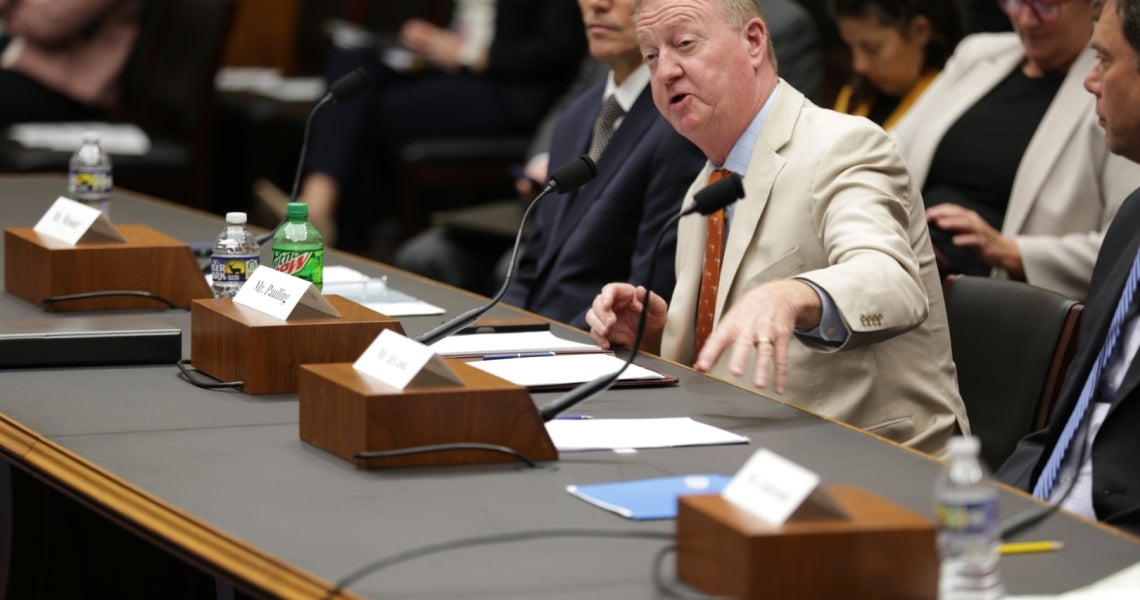Bob Paulling testifies before a congressional panel. Photo by Jerry Mosemak of NRECA.
Washington, D.C. – Mid-Carolina Electric Cooperative CEO Bob Paulling warned a congressional panel on Wednesday that blackouts may become “a routine part of our lives” if the country doesn’t act soon to expand power generation and preserve the reliability of the electric grid.
Testifying before the U.S. House’s Subcommittee on Energy, Climate, and Grid Security, Paulling called on federal officials to work together to streamline regulations, untangle supply chain bottlenecks and ensure there is adequate power supply to meet the rising demand.
Otherwise, “jobs and industry will flee not only in South Carolina, but the country,” Paulling cautioned. “That is not a future we can accept.”
Paulling’s testimony comes amid a national conversation over the push to electrify the economy while simultaneously attempting to reduce carbon emissions from the utility industry.
Paulling, a native South Carolinian who has led Lexington-based Mid-Carolina Electric since 2013, noted that the Palmetto State’s electric cooperatives have worked hard to reduce carbon emissions. But they also need to ensure there’s enough power to keep the lights on even as population growth, economic development success and adoption of electric vehicles sends demand for electricity through the roof, Paulling said.
The electricity South Carolina’s cooperatives supply today is generated with 40% less carbon emissions today than in 2005, in part because utilities have replaced coal-fired power plants with natural-gas fired ones that produce fewer emissions.
But Paulling cautioned that energy producers shouldn’t be forced to retire any more power plants until they have adequately replaced them with dependable generation units that can run in all weather.
Paulling testified about the dire situation across the Southeast last Christmas when days of freezing temperatures sent the power grid to the brink. Several utilities were forced to conduct rolling blackouts - shutting off power for their consumers on Christmas Eve.
Mid-Carolina Electric managed to avoid cutting off anyone’s power, Paulling testified, but only because businesses and schools that normally use a lot of electricity were closed for the holiday.
“If that had happened on a Tuesday in January, we would have had blackouts throughout the Southeast,” Paulling said.
Paulling was questioned by a subcommittee that is chaired by U.S. Rep. Jeff Duncan, R-S.C., whose district includes a significant portion of Mid-Carolina Electric’s service territory.
Duncan noted South Carolina is the third fastest growing state in the country and “it’s clear we need a lot more power supply.”
A recording of the hearing is linked here.

